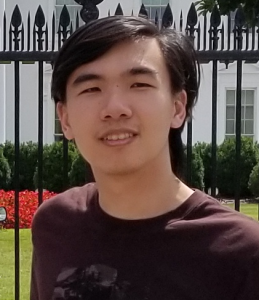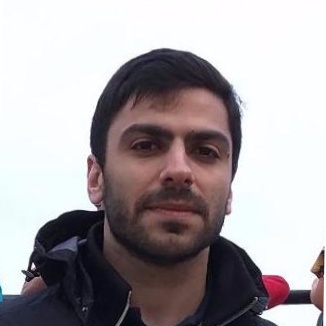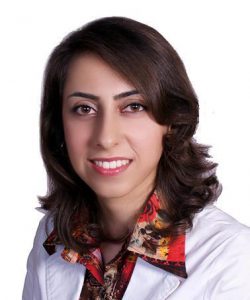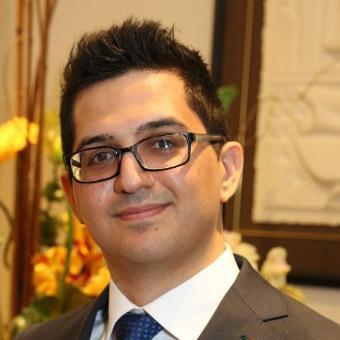I have had the privilege of working some very talented students and Post Docs over the years. Below you will find some brief information on my current and past students, as well as something about the research they are working on.
Clink on their name/image to be taken to their own website or LinkedIn page.
| Photo | Name | Thesis | Research Interests |
|---|---|---|---|
 | Mathew Cater Benavides, 2027 (expected) | TBA | TBA |
 | Xuchen Wu, 2026 (expected) | Partial Information Principal-Agent Problems | Xuchen is working on how principal-agent problems can be extended to partial information settings. |
 | Liam Welsh | Clean Energy Finance, 2026 (expected) | Liam is working on developing models characterizing Canadian carbon and GHG financial markets with heterogeneous agent participation. Liam’s research interests are in climate finance, renewable energy (market) modelling, mean-field games, and computational finance. |
 | Vedant Choudhary | Generative Machine Learning Models for Finance, 2026 (expected) | Vedant is working on generative modelling of financial time series data with an emphasis on synthesizing static arbitrage free dynamic implied volatility surfaces. He intends to utilize it for downstream applications such as hedging using reinforcement learning and portfolio allocation via mean-variance optimization. |
 | Emma Kroell | Reverse Sensitivity, 2025 (expected) | Emma is working on understanding how processes are minimally perturbed when one perturbs their risk at some point in time. |
 | Anthony Coache | Risk-Sensitive Reinforcement Learning Using Time-Consistent Dynamic Risk Measures, 2024 | Anthony worked on risk-aware reinforcement learning where an agent accounts not just for total rewards, but the risk associated with it, using dynamic risk measures. |
 | Yichao Chen | Deep learning for Mean Field Type Problems, 2023 | Yichao is working on developing guarantees on principal-agent problems using neural network function approximation. |
 | Brian Ning | Deep Reinforcement Learning, 2022 | Brian is working on combining reinforcement learning with deep learning methods and stochastic control and games. One application area is algorithmic trading. |
 | Arvind Shrivats | SREC Markets, 2021 | Arvind is developing the theory of how to endogenize prices in Solar Renewable Energy Certificate markets. |
 | Tianyi Jia | Algortihmic Trading in Foreign Exchange Markets, 2021 | Tianyi’s work looks at foreign exchange markets. He is developing algorithmic trading schemes for triplets of FX pairs and accounting for order-flow uncertainty. |
 | Zhen Qin | Model Uncertainty in Commodity and Energy Markets, 2021 | Zhen’s work focuses on developing commodity models for derivative valuation and trading when the agent accounts for model uncertainty. |
 | Ali Al-Aradi | Outperformance and Tracking: A Framework for Optimal Active and Passive Portfolio Management, 2020 | Ali focuses on using optimal portfolio allocation problems where the agent has benchmarks that they aim to track. |
 | Tad Ferreira | Machine Learning in Algorithmic Trading leading to Reinforced Deep Kalman Filters,2020 | Tad works on machine learning techniques for financial modeling and focuses on deep markov models for reinforcement learning. |
 | Philippe Casgrain | Algorithmic trading with latent models and mean-field games, 2019 | Philippe’s work looks at mean-field games models of optimal trading when there are hidden underlying factors driving the dynamics of asset prices. |
 | David Farahany | Mixing Monte Carlo and Partial Differential Equation Methods For Multi-Dimensional Optimal Stopping Problems Under Stochastic Volatility, 2018 | David developed a novel approach for valuing path-dependent options using mixed PDE and Monte-Carlo methods. |
 | Xuancheng (Bill) Huang | Mean-Field Games with Ambiguity Aversion, 2017 | Bill is developing the theory of incorporating ambiguity aversion (model uncertainty) into mean-field games. |
 | Luhui Gan | Dynamic Trading in a Limit Order Book: Co-Integration, Option Hedging and Queueing Dynamics, 2017 | Luke solved several algorithmic trading problems: trading co-integrated assets, using limit and market orders to hedge options, and valuing queue position. |
 | Ryan Donnelly | Ambiguity Aversion in Algorithmic and High Frequency Trading, 2014 | Ryan studied how model uncertainty (ambiguity aversion) modifies the trading strategies of algorithmic traders. |
 | Jason Ricci | Applied Stochastic Control in High Frequency and Algorithmic Trading, 2014 | Jason investigated high-frequency algorithmic trading problems (market making and trading strongly co-dependent assets) using stochastic control techniques. |
 | Eddie Ng | Kernel-based Copula Processes, 2010 | Eddie introduced the notation of kernel-based coupla processes, extending the notion of Gaussian process in machine learning to account for general marginals and co-dependence structure. |
 | Georg Sigloch | Utility Indifference Pricing of Credit Instruments, 2009 | Georg developed a utility indifference approach to valuing credit risk and accounting for model uncertainty. |
| pic here | Angel Valov | First Passage Times: Integral Equations, Randomization and Analytical Approximations, 2009 | Angel investigated variations of the Skorhod embedding problem, where the goal is to match a given distribution by the distribution of a stopped Brownian motion. |
 | Vladimir Surkov | Option Pricing using Fourier Space Time-stepping Framework, 2009 | Vlad developed an efficient numerical scheme for valuing options with path-dependent features, such as Barrier and American options, using Fourier techniques. |
 | Samuel Hikspoors | Multi-Factor Energy Price Models and Exotic Derivatives Pricing, 2008 | Sam worked on projects related to commodity and energy markets. In particular he was intereted in option pricing with stochastic volatility using singular perturbation theory techniques. |
| Photo | Name | Research Interests |
|---|---|---|
 | Ziteng Cheng | Ziteng is working on sequential decision making, mean field games, and learning theory. |
 | Dena Firoozi | Dena is working on incorporating latent factors and partial information into mean field games. |
 | Omid Namvar Gharehshiran | Omid is working on using stochastic approximations to solve, in a model free manner, for how to optimally trade assets that exhibit co-integration. |
 | Damir Kinzebulatov | Damir developed a number of algorithmic trading strategies which incorporated both limit and market orders, as well as developed a new class of models based on randomized pinned measures. |
 | Mojtaba Nourian | Mojtaba’s interest lie in mean-field games (MFGs) when there is one large player and a sea of many small players — called a major-minor MFG. We studied how major-minor MFGs can be used to solve the problem of a large institutional investor who is executing an order in an environemnt where there are a number of intelligent HFTs operating. |